Muhammed Ali, born Cassius Clay, is one of the best-known boxers in the history of the sport.
He was an Olympic gold medalist in 1960. Four years after that he became heavyweight champion of the world for the first time and took that title again twice more during the ‘70s.
Over the course of his career, he had 56 wins, 5 losses, and 37 knockouts, finally retiring from boxing in 1981.
He was diagnosed with Parkinson’s disease three years later. After he retired, he did a lot of philanthropy and was awarded the Presidential Medal of Freedom in 2005. Ali died June, 2016.
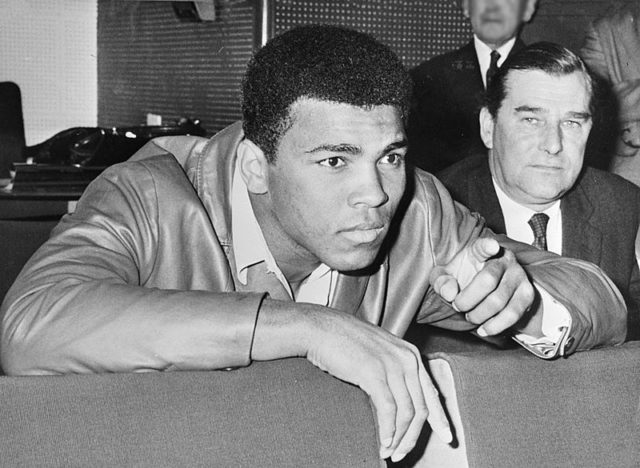
Along with his notable achievements in and out of the boxing ring, he also had another notable gift — talking trash. During his life he uttered a number of quotable remarks, some of which have become deeply embedded in our culture. Here is a sampling of some of the best, courtesy of ABC News:
“Float like a butterfly, sting like a bee. George can’t hit what his eyes can’t see. Now you see me, now you don’t. He thinks he will, but I know he won’t. They tell me George is good, but I’m twice as nice. And I’m gonna stick to his butt like white on rice.”
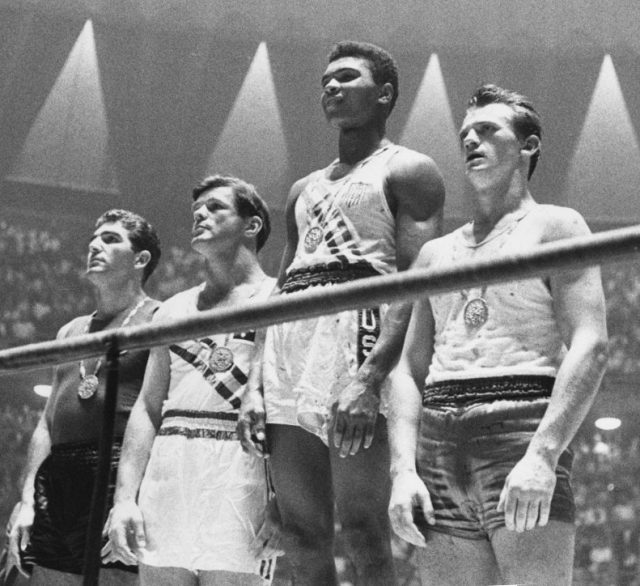
Ali said this just before his 1974 “Rumble in the Jungle” with George Foreman. The fight was held in Kinshasa, Zaire, on October 30.
In front of 60,000 spectators, Ali knocked Foreman out in the eighth round. Ali won the fight, but this battle call to his opponent may have a larger role in increasing his fame.
“I have wrestled with an alligator, I done tasseled with a whale. I done handcuffed lightning, threw thunder in jail. That’s bad. Only last week, I murdered a rock, injured a stone, hospitalized a brick. I’m so bad, I make medicine sick.”
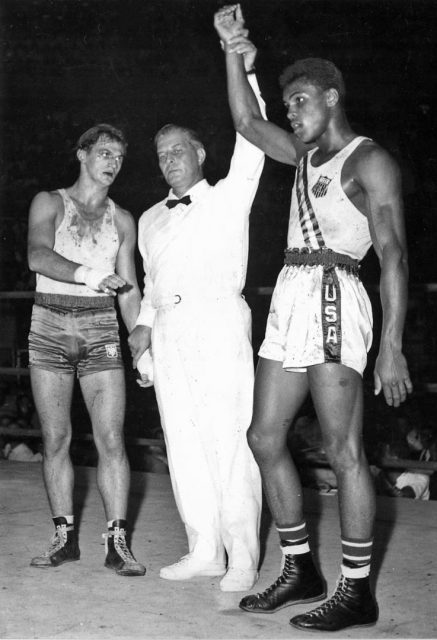
Any man can brag, but few can do it in rhyme, and even fewer can back it up.
“If you like to lose your money, then be a fool and bet on Sonny, but if you wanna have a good day, then put it on Clay.”
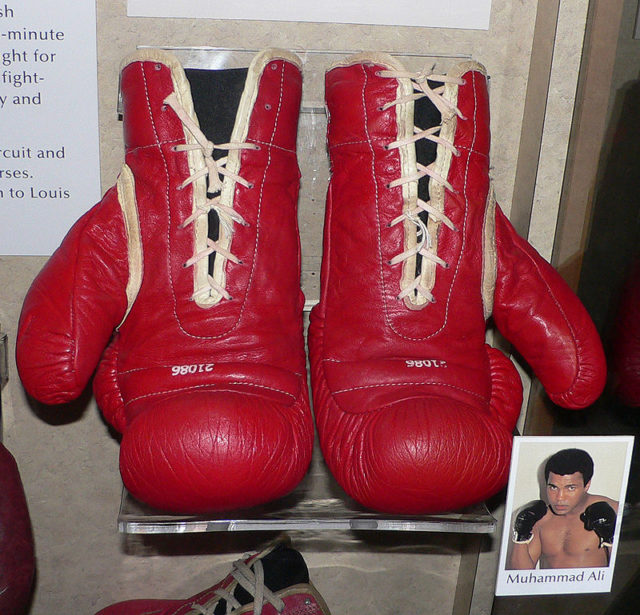
“Ain’t Liston ugly? He’s too ugly to be the world champ. The world champ should be pretty, like me.”
“I predict that Liston will go at eight to prove that I am great. If he wanna go to heaven, I’ll get him in seven. He’ll be in a worse fix if I cut it six. And if he keeps talkin’ jive, I’ll cut it to five.”
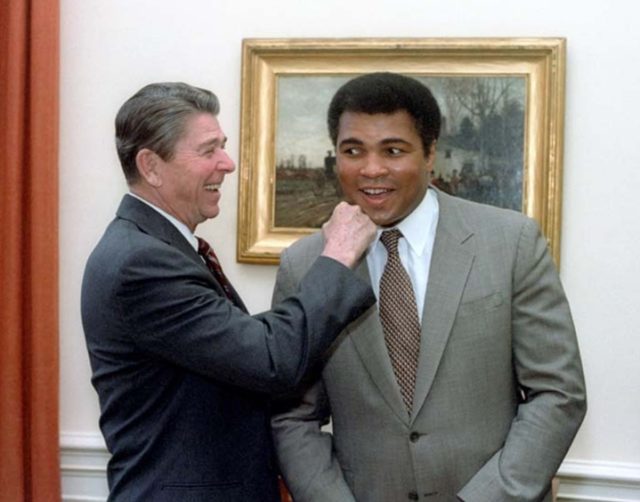
Ali fought Sonny Liston twice in heavyweight title fights. According to Boxing News, many fans and professionals believe that at least the second fight, and very possibly the first as well, were fixed.
Liston was generally considered to be unbeatable, yet he quit in the first bout, and the second time they fought he went down from a punch that many didn’t see. Of those who did see it, there is a general consensus that it shouldn’t have had enough power to take him down.
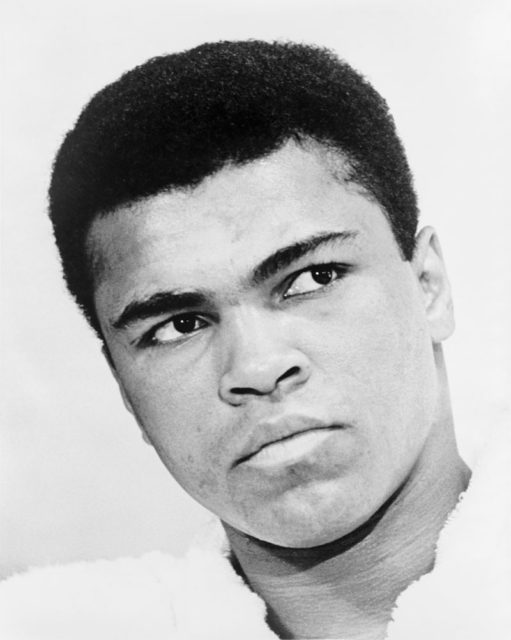
Liston himself expressed a great deal of surprise after the first fight about Ali’s power and skill, so it could simply be that he wasn’t expecting to have to work hard for a win.
“Whatever truculent means — if that’s good, I’m that.”
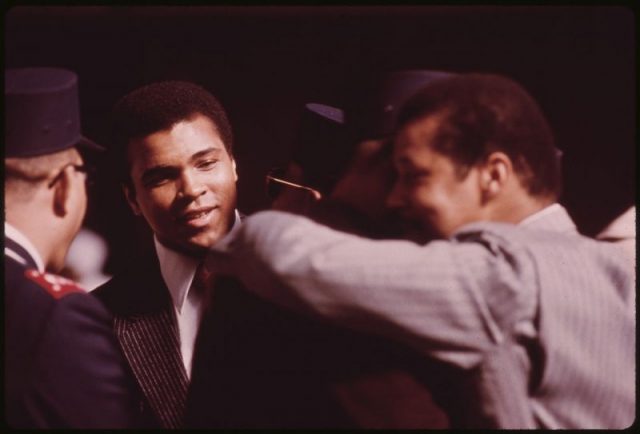
After being called “truculent” by Howard Cosell, this was Ali’s response. The boxer and the sports announcer had an unusual relationship, according to the New York Daily News.
Both men had had their share of nay-sayers among the public and the media, for various reasons, but they were also allies. Cosell’s Wide World of Sports gave Ali a platform to give his side of the story.
Ali gave Cosell a platform for being a journalist, and not just an announcer.
“Joe’s gonna come out smokin’ but I ain’t gonna be jokin’. I’ll be peckin’ and a pokin’, pourin’ water on his smokin’. And this might shock and amaze ya, but I will destroy Joe Frazier.”
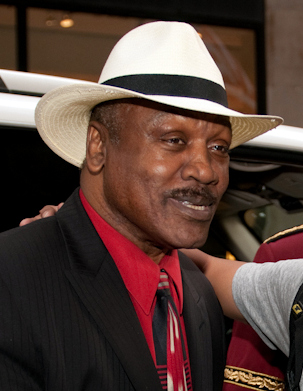
Muhammed Ali and Joe Frazier fought three times between 1971 and 1975. Newsday described the fights as “a brutal trilogy,” saying that it began as an embodiment of the culture war taking place in America at the time, and ended up defining the essence of the sport.
Frazier won the first of the three fights between them, on March 8, 1971, and it was the first loss in Ali’s career.
By the time they had the second fight, in 1974, neither was currently a champion any longer, but Ali beat Frazier in a unanimous decision. That second fight was really a stepping stone to the Rumble in the Jungle, where Ali reclaimed the heavyweight title.
The final fight between the two titanic boxers was the “Thrilla in Manila,” a truly brutal bout that Ali eventually won. He later said it was the closest he had ever come to death.
No matter the fight or the circumstances, Muhammed Ali always maintained his cocky attitude and quick mouth, and that was part of why America loved him, and why he will forever be an icon.
